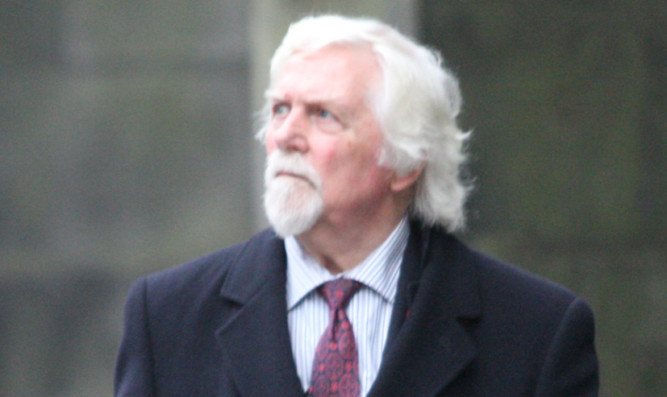A retired academic who contracted a rare form of cancer has lost a court bid to win compensation from a university.
Dr Robert Prescott stood to win £180,000 damages if he had succeeded in his claim against his employer St Andrews University.
The former lecturer was diagnosed with the terminal illness peritoneal mesothelioma in 2012 and sued the Fife institution alleging he contracted the disease because of negligent exposure to asbestos during his work.
The amount of compensation to be paid in the action at the Court of Session in Edinburgh was agreed, but liability was contested.
A judge ruled that Dr Prescott’s damages claim against the university failed.
Lord Pentland said: “I have concluded that the pursuer (Dr Prescott) has failed to prove that he was exposed to dangerous levels of asbestos dust in the Old Library as he avers.”
In the action Dr Prescott, 77, of Anstruther, contended he was exposed to the materiel during renovation works at the Old Library building in St Mary’s Quad in the 1970s.
The building was being modernised to house the psychology department.
Dr Prescott was a lecturer in behavioural science in the university psychology department and in 1983 was appointed as the inaugural director of the Scottish Institute of Maritime Studies.
Lord Pentland said: “The pursuer claims that in the course of his employment with the defenders, he required to visit the Old Library during the renovations and that during these visits he was negligently exposed to dangerous level of asbestos dust and fibres generated by the building works.”
“He maintains it was the inhalation of these poisonous substances that caused him to develop peritoneal mesothelioma many years later.”
Dr Prescott said he had been asked to help with the planning and layout of facilities for a new laboratory at the top of the building and said he had visited the Old Library around 12 to 14 times during construction.
Lord Pentland said he formed “the strong impression” during Dr Prescott’s evidence that his recollection of events at the time of the renovation project was unreliable.
The judge said: “It appeared to me that the pursuer’s memory from that era was at best fragmentary and that he has now been left with no clear or reliable recollection of any pertinent details.”
Lord Pentland said he was not intending to imply any criticism of the former academic’s integrity.
“It seemed to me to be significant that the pursuer was unable to offer any convincing explanation as to why he would have been on the construction site in the Old Library at a time in the project when asbestos was being stripped out and removed from the building and whilst dust and fibres were being released in significant quantities into the atmosphere,” he said.
“It is improbable that he would have been there whilst such work was being carried out; he had no knowledge of any of the technical issues that might have arisen during work of that nature; there would have been no practical or other contribution he could usefully have made at that time and he would probably have been in the way.
“It is much more likely that any visits the pursuer made to the site would have been at a later stage, after the stripping out and dirty work had been completed and any asbestos had been taken out.”
St Andrews University declined to comment.
